Can Expats Vote In UK Elections? All You Need To Know part 1 – that will be the topic of today’s article.
Before introducing this article, if you are interested in our core services which are expat financial, insurance and mortgages, you can contact me here.
The best time to consider your financial situation is when you are moving to a new country.
Introduction
Among the many rights of British citizens, which can be found in the Magna Carta, is the right to participate in elections. The requirements for voting are not listed there but were set out by an act passed more than 100 years later, still within the living memory of most of us.
Citizens of Commonwealth countries who are residents in the UK can vote. However, there is one exception, citizens of Ireland (Republic of) are not allowed to vote unless they have been residents for at least six months.
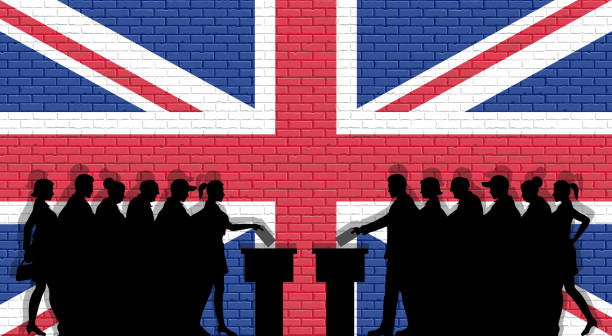
British citizens living abroad may register as an overseas elector if they were registered to vote in the UK within the previous fifteen years and intend to return to the UK within six months of registration. And they will only be allowed to cast their vote in one constituency.
To register as an overseas elector, expats need to complete a form sent by the Electoral Registration Officer (ERO) for that area to the address currently on record with them. However, if they have lived abroad for more than fifteen years, the ERO will have no record of their address.
In this case, expats will need to re-register as voters in the constituency where they are currently domiciled. Now, the question remains; can expats vote in the UK election? Well, that’s why we’ve compiled this article. Today, we will walk you through everything you need to know about expat voting. Let’s get it started!
Everything You Need To Know About the UK Election
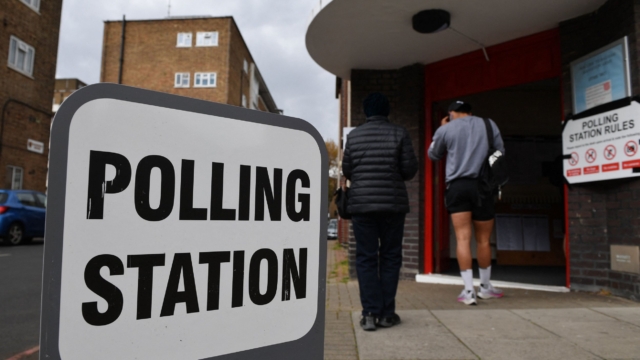
The UK general election is a major event in the political calendar. The general election elects members of parliament (MP) to each represent a different area in the UK by making their own policies and serving under Prime Minister. Election in the UK is quite different from what you’ll expect in other countries.
Nominating Candidates
The UK is split into 650 constituencies, each represented by an MP. In order for a person to become an MP, they must get themselves on the ballot for their constituency and be selected in a public election. This is known as ‘nomination.’ The way the public votes in the nomination select who becomes an MP is completely different from general elections.
In a nomination, an MP’s name, party, and policies are chosen by the public as candidates stand for election as independents with no party affiliation. Once nominations close, whoever has been selected will appear on the ballot on Election Day. This means there is a total of 650 MPs representing their constituency on one day.
Election Day
On a designated day, the 650 candidates selected by their constituency will stand for election. On this date, every resident of the UK who is eligible to vote – which means you must be 18 or over and a British citizen – can vote for whomever they want to represent them in parliament. This is important; you cannot choose who represents your constituency; the public is in charge. You can vote for whomever you like; they don’t have to be a party member, but they do need to represent what you believe in. If one candidate wins more than half the votes, they win their seat and become an MP – if not, you go back to the nominations stage.
Swinging Seats
There are certain places in the UK where elections are won and lost. These are called swinging seats because they swing between parties every election. The most famous of these is Hampstead & Kilburn – a constituency in London that has changed hands four times since its creation in 2010. During the general election, the party with the most seats will form a government.
The first past the post system used in UK elections means that it is unlikely for two parties to have an equal number of votes, so one party generally ends up with one more than another. The party with the most seats will be given the monarch’s task (Queen/King).
The Prime Minister
Once the party leader with most seats, they will choose a team of people to represent them in parliament. This is known as their ‘cabinet.’ In order for a person to be given a role in the cabinet, they must have been elected by being an MP. The leader of the party becomes Prime Minister, and their cabinet helps them to make policy and govern the country.
UK Election – What Happens Next?
Most seats will form a government, and their leader becomes prime minister. They then pick a cabinet of people who will help them run the UK. Moreover, the opposition leader becomes the leader of their party and chooses a team to represent them.
Can Expats Vote In The UK Election?
British citizens who have lived in the UK within the last 15 years can vote in general elections. You must register to vote, which you can do here. On the other hand, expats who have lived outside the UK for more than 15 years will not be able to vote.
Requirements for Expats to Vote in the U.K. Election
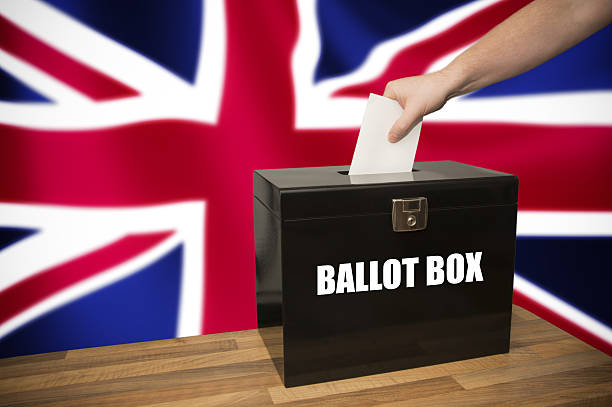
Expatriate citizens are not allowed to vote unless they have lived in the UK within the last 15 years. This is because they will most likely have moved abroad for work or education reasons rather than any nefarious activities.
Expats who live outside the UK can register to vote online, but only if they have been on a UK electoral roll at any point in the last 15 years. Without further ado, below are the 7 requirements expats need to have before voting in the United Kingdom.
- The first requirement for expats to vote in the U.K. election is to be on the electoral roll on or before 15 years of leaving the country, as published on 1 December following their departure from Britain.
- Expats who leave Britain must not have been living outside of the United Kingdom for more than a total of five years.
- Only expats who were previously British citizens, a qualifying Commonwealth citizen, or a citizen of the Republic of Ireland can register to vote in the U.K.
- Provided that they are included on an electoral roll published by 1 December every year after they depart from Britain.
- Expats must also be British citizens, a qualifying Commonwealth citizen, or a citizen of the Republic of Ireland.
- It is also vital for expats to have been on an electoral take part in any election held between their departure from Britain and 1 December following that time.
- Expatriates must have been living in the UK within 15 years prior
How Does Voting Work In The UK?
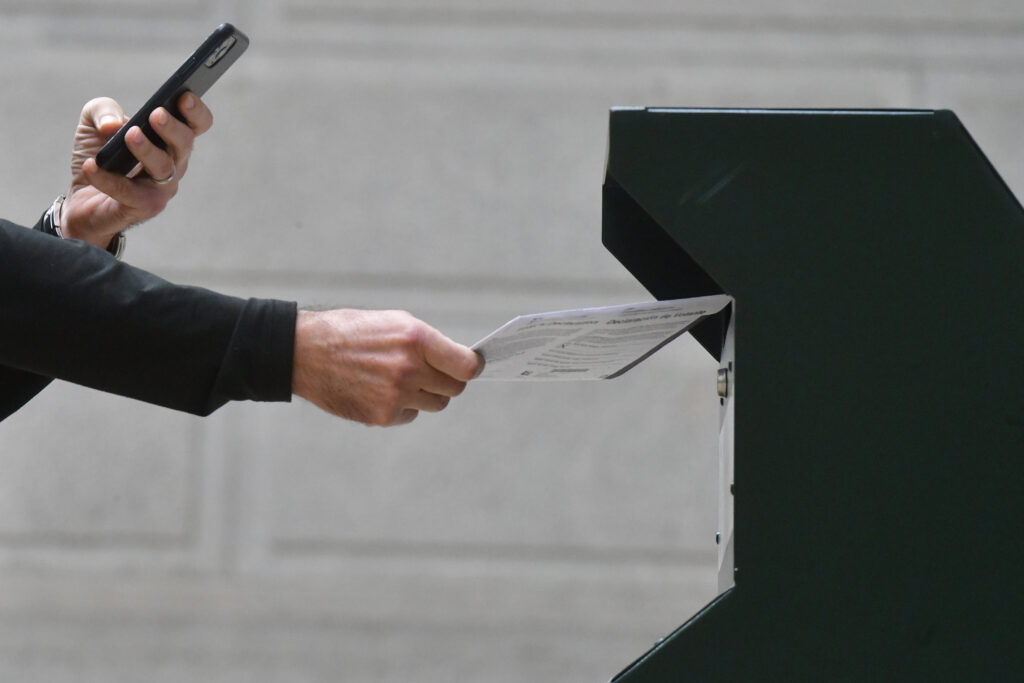
The voting process is completely different from what you might be used to in your home country, but it’s very simple. Once you register to vote (which you can do here), every constituency will hold their election on one day; this is called ‘Election Day.
The day itself is chosen by parliament and usually takes place within 2-4 weeks of Election Day. Nominations close a week before an election, and the party with the most seats will form a government. In order to vote, you must be registered, which involves sending some identification information to your local authority.
You don’t need to take any ID with you when you vote – just bring yourself along! Remember to bring your National Insurance Number (NINO) and polling card with you, if you’ve got them. This is important; if you don’t bring these items, the staff in the voting station won’t be able to find your information in their system and therefore can’t let you vote.
You will be given two ballot papers when you arrive; one for your constituency MP and one for elected members in the local area. You only get to vote once for your constituency MP, but you can put as many crosses next to the names of people you want to represent you on the other paper (local elections).
If nobody wins more than half the votes in the general election, another election will be held within 3 months. This would mean that one party could win more than half the votes again and put them back in charge.
7 Things to Know About U.K Voting System
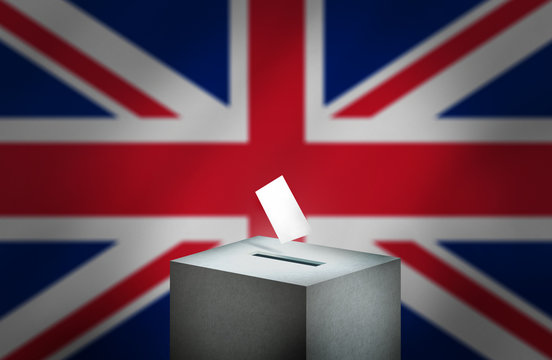
The United Kingdom uses a single-member district plurality voting system in elections, also known as ‘first past the post.’ In this system, voters vote for one candidate from multiple choices, and the person who gets the most votes wins.
This voting method often leads to a two-party system, as the leading parties usually win with a large majority. The United Kingdom general elections occur after a fixed term of five years and elect representatives from 650 districts to form their local governments.
The Voting Age in the U.K Is 18
Those 16 or 17 can vote if they will be 18 by Election Day. This means; that people who are 16 at the time of elections can vote in the coming U.K general elections if they are 18 before May 2024.
The Voting Process Is Simple and Straightforward
The U. Kingdom has a simple, understandable voting system in which you cast a ballot for a single candidate from a list of multiple choices. Once done, your vote is either counted or thrown away depending on whether your candidate gets more votes than anyone else.
The majority of Votes Is All That Counts, Even If It’s 100% Minus 1
For example, in a district with 5 seats (candidates A to E), voters choose four different parties. Candidate F wins with 100% of the vote, beating candidate B by one vote. For simplicity’s sake, let us assume only one person voted.
If that were the case, candidate A gets zero votes, B gets one vote, C gets two votes, D gets three votes, and E gets four votes. Candidate F would be deemed to have received 100% of all possible votes cast in this example.
There Is No Such Thing as a Wasted Vote
Since every vote cast toward a winning candidate is counted, there is no such thing as a wasted vote. Even if your candidate loses, your vote still contributes to the pool of votes tallied up at the end of Election Day. This means you have nothing to lose by voting for the party or person you really want to win since it’s impossible for your vote not to count.
A Party Winning an Election Will Rarely Win 50% of the Popular Vote
When there are more than two parties, it is very difficult for anyone to secure more than 50% of the total vote. This means that coalitions are common in many countries with a plurality voting system instead of a majority voting system.
Politics Tend To Focus On the Major Parties
In a first past the post system, voters tend to vote for a party other than the one they would prefer to win. This is because voting for a minority party has a low chance of success, so people choose one of the major parties or a centrist party. This leads to the election of two main parties who are seen as being “acceptable” by more people than their opponents.
The Voting System Doesn’t Account For All Equally
The United Kingdom uses a single-member district plurality voting system which means it gives extra weight to votes cast in certain places, called districts. This means it might not be possible to vote for a party other than the one you would prefer and still see that party win the elections.


